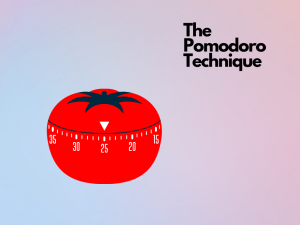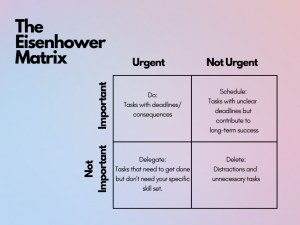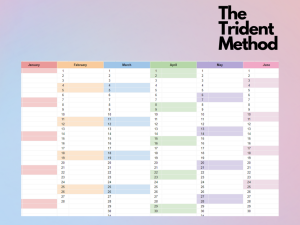There are divided opinions on the hustle culture. Some feel the need to cram activities into their schedule to be productive, convinced that doing more keeps them one step ahead of their peers. Others believe that hustle culture is toxic and prioritise work-life balance instead.
What is productivity?
Economics defines productivity as the output per unit of input, be it labour, capital, or other resources – it’s the amount of work done due to the investment of any of the above.
When measuring productivity with this benchmark, time often goes unaccounted for, as your only concern is finishing as much as possible, regardless of your work quality and efficiency. As a result, you might even miss out on the most important things you have to do and feel overwhelmed even before the day ends.
Making time for productive work
There’s nothing wrong with completing more tasks, especially when you have an overflowing work pile that warrants your attention. However, constantly racing against time can make you lose focus.
Instead of bulldozing through your work and whining about the lack of time, you can change your way of working by making time. This allows you to choose fewer tasks that you want to focus on based on priority and channel more energy toward those. It is about being more intentional with how you spend your time.
How do you make time?
1. Prioritise, not compromise.
Everything on your list screams equal importance, but are they really that urgent? Former U.S. President Dwight Eisenhower once said: “I have two kinds of problems; the urgent and the important. The urgent aren’t important, and the important are never urgent.”
Excellent time management equates to being effective and efficient. First, write down all your tasks and categorise them based on urgency and importance. This will help you be intentional and proactive as you navigate your day, instead of multitasking and not being able to give your fullest to each task.
2. A man with a plan
With planning, you won’t have to waste your energy on deciding what you need to do next or what you should or could do. Before you start a new day, make it a habit to write down all your tasks and label them according to their priority and importance. Next, schedule time blocks for your task, breaks, and goals you want to achieve for the day, to keep track of your progress. After defining your day’s parameters, focus on how to do it and get things done. Make time for breaks by grabbing a healthy snack or taking a walk; sometimes, even a change of scenery does wonders.
Even with a perfect plan laid out, there may be instances when unplanned tasks demand immediate attention. If these are urgent and important, be flexible and adapt accordingly.
3. Practice digital minimalism
Most of us are either heavily addicted or reliant on our mobile devices for convenience, information, and entertainment. Addiction often leads to distraction, but before you throw out all your gadgets and live like a caveman, start by redesigning how you use technology.
Instead of having it control you, take back control. Simplicity is key; a pen and paper might be all you need to plan your day instead of spending an hour creating an aesthetic to-do list on your computer.
Next, log out all social media apps that get your fingers itching to pick up your phone, turn off notifications to keep you from glancing at your screen each time it lights up, and remove all tabs that are irrelevant to your tasks.
Simple, effective tools that work from beginner to productivity expert

The Pomodoro Technique
This time management system is an excellent, easy-to-use tool for beginners that encourages working within the set time. Choose a single, important task to focus on, set a timer for 25 minutes, and then take a five-minute break after.

The Eisenhower Matrix
This framework is used to organise tasks by urgency and importance, to help name your priorities and determine what will potentially distract you. This powerful tool is known to minimise the stress of deadlines and help you be more intentional and efficient with your time.

The Trident Method
This is a three-pronged time management method by Ali Abdaal, a doctor-turned-YouTuber productivity expert. You can break down your plans for the year, month, and day with this calendar. In a year’s plan, you get a bird’s eye view of what you want to achieve throughout the year at a glance, such as a new goal, side project or even planning a trip.
Weekly plans let you plan your days systematically instead of having tasks scattered everywhere. Planning for the week keeps you from being overwhelmed.
Lastly, daily planning shows you what you’ll be focused on throughout the day. Make space for interruptible activities and personal life, then do your best to stick to the plan.
If you’re already doing a great job in managing your time and getting things done, keep it up. But if you think there’s still room for improvement, choose and experiment with tools that work best for you; there’s no one size fits all productivity system or tool, and if you need more time, make time.
This article is contributed by Good Job Creations.















